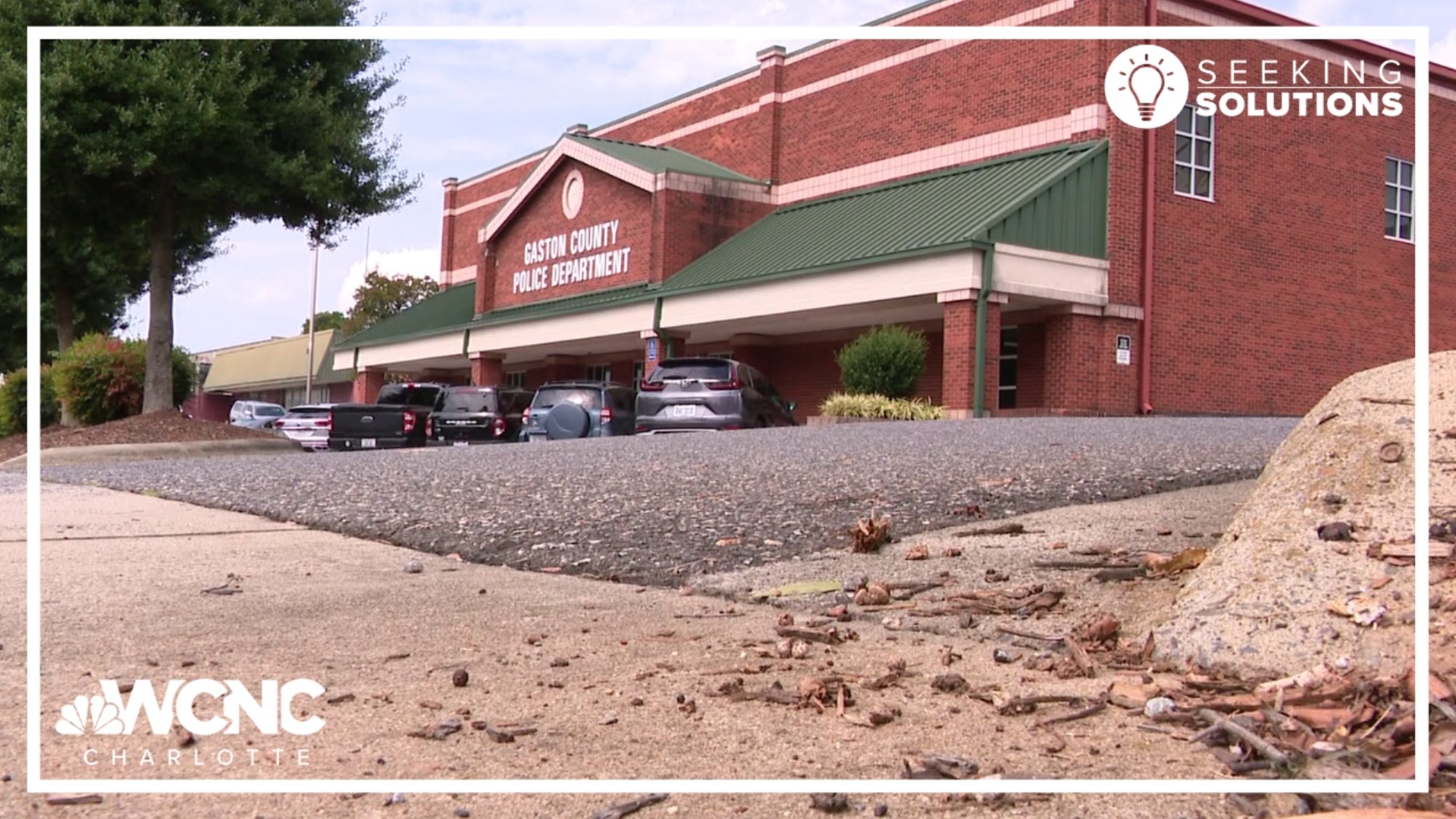GASTON COUNTY, N.C. — The Gaston County Police Department is seeking solutions when it comes to preventing crimes and addressing public safety. The agency kicked off a diversion program to redirect low-level offenders and connect them with services and treatment.
GCPD launched the Law Enforcement Assisted Diversion Program - also known as L.E.A.D - just a few weeks ago and already has a few participants. On a case-by-case basis, people who commit non-violent crimes and suffer from substance abuse, for example, could be given the option to get the help they need instead of being locked up.
Adrien Sanders is the L.E.A.D. program coordinator for the department. She said she is excited to have this tool for law enforcement to use.
“You can't arrest your way out of the substance use issue,” said Sanders. “You can keep arresting the same people over and over, but they go back to the same communities with the same issues, and so the problem never gets resolved.”
The program's goal is to help people who suffer from substance abuse, homelessness, poverty, or mental health issues as they likely face arrests for low-level crimes. In short, it's about getting to the root causes of the problems people face in an act to try and reduce crime rates.
“A lot of it is the possession, paraphernalia,” said Sanders. “It could be even if they were breaking and entering to steal something to support their habit.”
Sanders said it is about connecting people with caseworkers and the harm reduction care they need.
“It is voluntary, so there is no coercion. But if someone needs the help, feels like they need, then the officer has the ability to defer them to case management so we can try to help them, so they don’t have future interactions with the police like that,” Sanders said.
Karen Lowe, a North Carolina Peer Support Specialist for Gaston County, has experience with the efforts. She was part of the L.E.A.D. program in Iredell County and said it works.
“I’ve helped orchestrate putting people in detox,” said Lowe. “I've helped people get housing. I helped people with emergency needs like food and emergency shelter.”
Duke University's School of Medicine said L.E.A.D has promising results. Researchers evaluated four North Carolina L.E.A.D. programs from 2019 to 2022. They found people who were actively enrolled and engaged in the program had 50% lower rates of being arrested again six months after referral.
Based on data they received from clients, the school also reported that 68% of participants received substance use treatment, 47% received mental health counseling, 25% received employment assistance, and 18% received housing assistance. Duke also found the program helped reduce costs in crisis-related services.
“To incarcerate someone costs a lot of money,” said Sanders. “It's not just the jail cost, but you are also dealing with the cost of prosecution. The district attorney’s office needs to pay staff to prosecute these charges, the courthouse staff, and more.”
The police department received a $1.2 million grant from the Department of Justice to run the program for three years. With that money, they were even able to get a car to help people in need of transportation to get to the services.
“People matter. I don't care what someone's going through, it's still a human being and those people matter,” said Lowe. “A lot of people have either fallen through the cracks or have not gotten the support that they needed. What they don't have is anybody to champion them and so that's what these programs do.”
This is a collaborative effort. Sanders said that every other week they have a group that includes case managers, police, and someone from the district attorney’s office coming together to discuss participants and their progress and to make sure they are using the services.
“We are not set up to help hundreds of people in this very beginning, but hopefully we can help and make some headway in those issues, and hopefully with those successes we can expand and help even more people,” said Sanders.
Contact Jesse Pierre at jpierrepet@wcnc.com or follow her on Facebook, X and Instagram.
WCNC Charlotte is committed to reporting on the issues facing the communities we serve. We tell the stories of people working to solve persistent social problems. We examine how problems can be solved or addressed to improve the quality of life and make a positive difference. WCNC Charlotte is seeking solutions for you. Send your tips or questions to newstips@wcnc.com.

